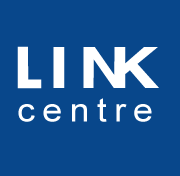SA Maker Movement Workshop
3 March 2017, Pretoria
The Institute for Economic Research on Innovation (IERI) at the Tshwane University of Technology, and the LINK Centre, co-convened the Open African Innovation Reseach Partnership (Open AIR) SA Maker Movement Workshop on 3 March 2017 at the IERI complex in Pretoria.
The "maker" movement is focused on largely informal, openness-oriented innovation by collectives of interdisciplinary makers working together in makerspaces. Sometimes referred to as an “open source hardware” movement, making typically involves the collaborative use of digital 3D printers, Arduino circuits, laser cutters and milling machines to create innovative products.
Makers from Gauteng Province, Durban and Cape Town in attendance at the workshop gave faccounts of their experiences on issues of sustainability, innovation/enterprise-scaling, outreach, skills development, and national networking. Open AIR researchers from Egypt, Kenya, South Africa and Canada presented preliminary findings on those countries’ existing maker movements. The LINK Centre's Dr Chris Armstrong is part of the Open AIR South Africa team investigating the maker movement
The maker collectives featured at the workshop were Geekulcha in Pretoria, I Make Makers Lab at the Makers Village in Irene (next to Pretoria), Maker Station in Cape Town, eKasi Lab Ga-Rankuwa in Pretoria North, The MakerSpace in Durban, the Digital Innovation Zone (DIZ) MakerSpace at the Wits University Tshimologong Digital Innovation Precinct in Johannesburg, KATO in Cape Town, the University of Pretoria (UP) MakerSpace, and BinarySpace in Vanderbijlpark (in the Vaal Triangle, south of Johannesburg).
The day before the workshop, Open AIR researchers from South Africa, Kenya, Ethiopia, Egypt, Nigeria, Ghana, and Canada took a visited the UP MakerSpace, Geekculcha (headquartered at mLab Southern Africa, in the The Innovation Hub), and the I Make Makers Lab.
On the Saturday after the workshop, Open AIR researchers received an “Intro to Making” session facilitated by one of South Africa’s pioneering makerspaces, House4Hack. (Guided by House4Hack members, the Open AIR participants built Arduino-controlled, cricket-playing robots!)
The Open AIR Partnership is supported by Canada's Social Sciences and Humanities Research Council (SSHRC), Canada's International Development Research Centre (IDRC), and by the UK's Department for International Development (DFID).

